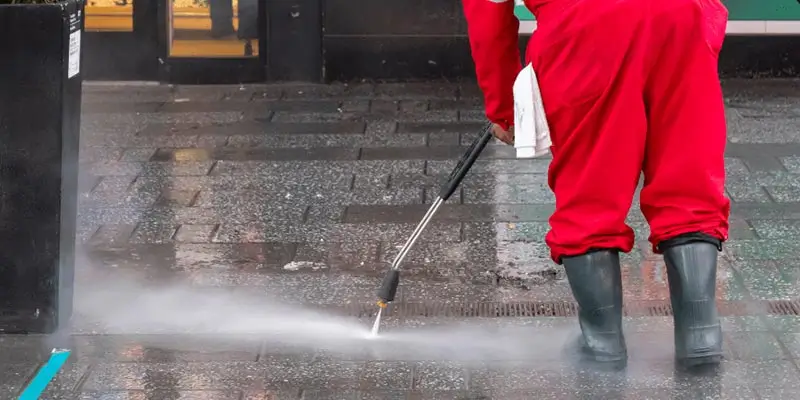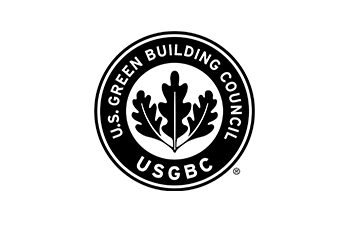
What is the Difference Between Power Washing and Pressure Washing?
While many people may use the terms “power washing” and “pressure washing” interchangeably, there are subtle yet significant differences between the two techniques. Although both processes involve the use of high-pressure water to clean surfaces, variations in water temperature and cleaning power distinguish them. Power washing typically employs hot water and is known for its effectiveness against stubborn stains. In contrast, pressure washing relies solely on water pressure. Let’s delve into the nuances of these two methods.
In this guide, we dive into the essential facts of using a power washer vs. a pressure washer, how each process works, and their pros and cons. As we go over the details of power washing vs. pressure washing, you’ll learn when to use each method and achieve optimal cleaning.
Power Washer vs. Pressure Washer
What Is a Power Washer?
A power washer, also known as a hot water pressure washer, is a high-pressure cleaning device that utilizes hot water to remove dirt, grime, and stains from various surfaces. It typically consists of a motor or engine that drives a pump, pressuring the water and delivering it through a wand or nozzle at high velocity. In addition, a power washer includes a heating element, such as a burner or electric heater, which heats the water before it is expelled.
The combination of high pressure and hot water makes power washers highly effective for tackling tough stains, grease, and oil, as the heat helps to break down contaminants more efficiently. Power washers are commonly used for heavy-duty cleaning tasks on surfaces like concrete driveways, industrial equipment, and metal structures, where thorough cleaning and sanitation are required.
What is a Pressure Washer?
On the other hand, a pressure washer is a high-pressure cleaning device that utilizes cold or normal-temperature water to remove dirt, stains, and blemishes. Like a power washer, it consists of a motor or engine that drives a pump, presses the water, and delivers it through a wand or nozzle at high velocity.
However, unlike a power washer, a pressure washer does not include a heating element to heat the water. While it may not have the sanitizing benefits of hot water, pressure washers are versatile and suitable for various surfaces, including more delicate materials like wood and vehicles.
They are often preferred for regular maintenance cleaning or areas where hot water is unnecessary. Power and pressure washers require proper technique and caution to avoid causing damage or injury while cleaning.
Pros and Cons of Power Washing vs. Pressure Washing
Both power washing and pressure washing have their benefits and disadvantages. Learning about these details will help you determine which tool is best to do the job properly and reduce any damage to your property.
Pros of Power Washing:
- Highly effective for removing tough stains, grease, and oil due to the heat.
- It can sanitize surfaces by killing bacteria and mold with hot water.
- It is ideal for heavy-duty cleaning tasks on durable surfaces.
- Offers thorough cleaning and sanitation, particularly for areas with stubborn stains or grease.
Cons of Power Washing:
- Requires more specialized equipment with heating elements, making it more expensive.
- It is unsuitable for all surfaces, as the high temperatures can damage certain materials.
- Consumes more energy compared to pressure washing due to the heating element.
- It may pose safety risks if not used properly, mainly due to the hot water involved.
Pros of Pressure Washing:
- Versatile and suitable for a wide range of surfaces, including more delicate materials.
- Requires less energy consumption than power washing due to the absence of a heating element.
- Preferred for regular maintenance cleaning or areas where hot water is unnecessary.
- It can be more cost-effective for general cleaning tasks.
Cons of Pressure Washing:
- It may be less effective against deeply ingrained stains and grease than power washing.
- Does not provide the sanitizing benefits of hot water.
- It can still damage certain surfaces if used at too high a pressure.
- Requires proper technique and caution to avoid causing damage or injury.
Understanding the pros and cons of each cleaning system will help you choose which tool for the specific cleaning job you’re working on. It is also essential to understand the technical details of each process.
Power Washer vs. Pressure Washer: Summary of Key Differences
These differences highlight the unique characteristics and applications of each method. The question that often follows understanding these differences is when to use a power washer or pressure washer to get the best results for cleaning surfaces.
| Aspect | Power Washing | Pressure Washing |
|---|---|---|
| Water Temperature | Uses hot water, typically heated to high temperatures. | Uses normal temperature water. |
| Cleaning Power | Highly effective for removing tough stains, grease, and oil due to the heat. | Relies on water pressure to clean surfaces. |
| Surface Suitability | Ideal for durable surfaces that can withstand heat, such as concrete or metal. | Suitable for delicate surfaces like wood or vehicles. |
| Equipment Differences | Machines include a heating element to increase water temperature. | Machines do not include a heating element. |
| Working Mechanism | Utilizes a combination of high-pressure water and hot water, often heated to high temperatures, to effectively break down dirt, grime, and stains. | Relies solely on high-pressure water to remove surface contaminants, without the use of heat. |
Pressure Washer or Power Washer: When to Use Each One
Use a power washer for heavy-duty cleaning tasks on durable surfaces like concrete driveways, industrial equipment, and metal structures, especially for stubborn stains or grease. On the other hand, opt for a pressure washer for regular maintenance cleaning or delicate surfaces like wood decks, siding, and vehicles, where hot water is not necessary.
Work With Specialists From REDLEE/SCS, INC
REDLEE/SCS, INC has over 40 years of experience in the commercial cleaning industry. We provide robust cleaning services to DFW property owners. Contact our specialists today to get a quote.
972-737-1415 Contact Us






